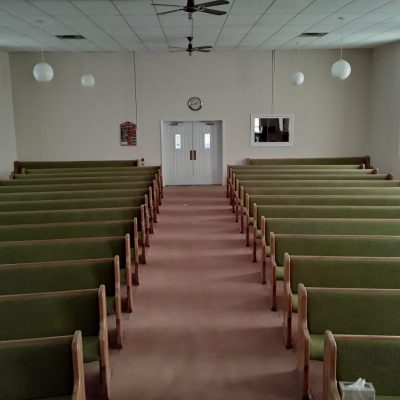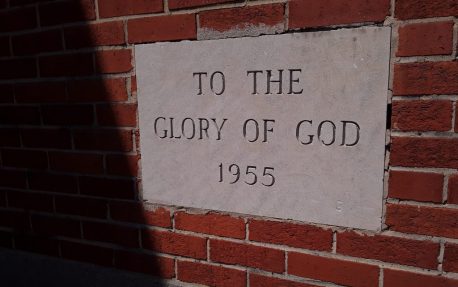SCRIPTURES
And Jesus came to them and said, “All authority in heaven and on earth has been given to me. Go therefore and and make disciples, baptizing them in the name of the Father, and of the Son, and of the Holy Spirit, teaching them to observe all that I have commanded you. And behold, I am with you always, to the end of the earth.”
- Matthew 28:18-20
“But you will receive power when the Holy Spirit has come upon you, and you will be my witnesses in Jerusalem and in all Judea and Samaria, and to the end of the earth.”
- Acts 1:8

Gospel To Every Home
Nearly everyone in the United States has spent more time at home in 2020 than they ever have before. It is a broad statement, but I think it is a safe generalization.
If you haven’t developed a habit of daily Bible reading this year, you have no real excuse. Granted, many of us have jobs in healthcare or other essential jobs that have kept us working. But there haven’t been many other activities in the past year to have taken up our time.
If we have not been actively preaching the gospel, at least to ourselves, in our own homes the refrain of “The church is not just a building,” echos as emptily as our worship hall in April of 2020. Now imagine how it is to live in a home where the gospel is not known or preached.
If you have been reading through the Bible this year at a steady pace, it is likely that you are now or have already read about Jesus’ death, burial, and resurrection. In our F260 Bible reading plan that I challenged everyone to start at the beginning of the year, we are now memorizing and meditating on the passages in Matthew’s gospel and the Acts of the Apostles that contain Jesus’ words commissioning his church under his authority and by his Holy Spirit to further his kingdom on earth as it is in heaven.
We are commanded, from the beginning of the church, to proclaim his good news, the gospel of the kingdom, to every people group on earth, starting with our own community. It may seem unlikely that any of us will ever take the gospel to a tribe in some foreign land that has never before heard the good news that God became a man to save sinners, first by dying in our place and then rising from the dead. But we might be called to do just that. We are definitely called to take the gospel to our neighbors, one of whom may also be called to take the gospel to another group of people on the other side of the planet. This is the plan for his church that Jesus set into motion when he came preaching, “Repent, for the kingdom of God is at hand.”
Our Kentucky Baptist Convention has made getting the Gospel To Every Home the mission for 2021. It is ambitious. Apart from the miraculous work of the Holy Spirit, it is impossible. In Campton, we are well situated to reach most of the homes in Wolfe County with less than a 15 minute drive to their doors. This is our Jerusalem and all of Judea and Samaria. Even here, there are many homes in which the gospel is not truly known, much less understood. To many in my own generation and younger, the name of Jesus has become barely more than an oath with which to express disgust or frustration. We have a joyful obligation to our King to make the greatness of his name known here.
Our first step is pray for eyes, ears, and hearts to be opened to know the majesty of Jesus, repent of sin and follow him. Then we have very practical steps of planning our routes, trips and times to go out to tell people about Jesus. I am excited about what God is already doing through his people in presenting us with this initiative. Let’s trust God to bring forth a harvest worthy of his name. Pray that we can do what Matthew 28:18-20 commands and trust what Acts 1:8 promises.




